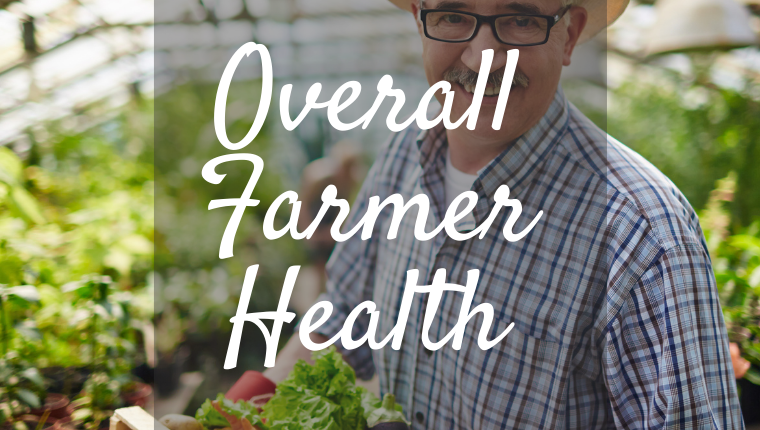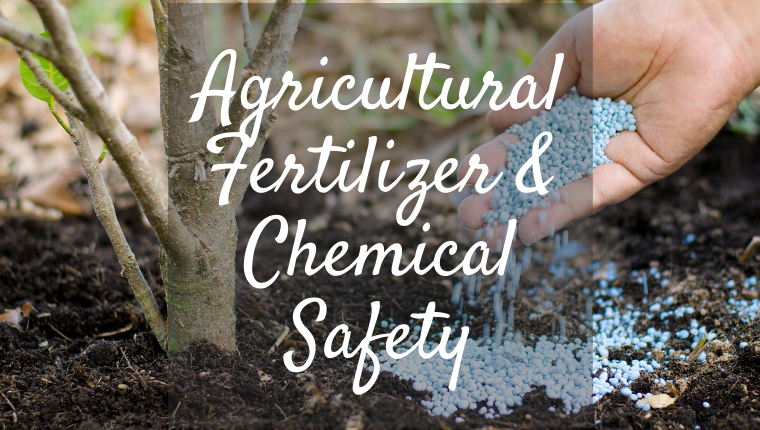National Farm Safety and Health Week
August 23, 2021 | by BMI Staff
Farming is an imperative practice in both local and national economies. Industries that rely on raw materials like cotton, sugar, and oil are dependent on agriculture. Farming creates countless jobs that go far beyond working the land. In honor of National Farm Safety and Health Week, the third week of September, we have several tips for our farming friends on how to stay safe and take care of your mental health in such a strenuous and hazardous line of work.
Monday: Tractor & Rural Roadway Safety
Rural roads are unpredictable and full of blind spots. Especially when driving down new or dark rural roads, make sure you are following all road signs and passing rules. Although these roads usually do not feature much vehicle traffic, employ your defensive driving skills for potential animals in the road. Take a look at these tips for staying safe and kind on rural roads.
Follow the speed limit.
Because rural roads are typically void of traffic, it is a common assumption that speeding is safer on these roads than on the highway. However, speed limits often change to fit the hazards on the stretch of road ahead. These limits are there for a reason and should be respected by all drivers.
Pass with caution.
Consider the lines on the road law rather than suggestion. They signify upcoming curves and hills that pose dangerous blind spots. Remember that if you are in the mood to go faster, oncoming traffic will likely be as well.
Watch for signs indicating an upcoming driveway or hidden road.
If the stretch of road you are on is particularly hilly, slow down and use caution when approaching signs for intersecting roads—especially the ones located at the tops of hills. Cars turning onto your road will often be unable to detect oncoming traffic.
Be on the lookout for tractors on the road.
Farming vehicles are often found on rural roads, as is their right. These drivers often have limited visibility and are only able to reach a certain speed. When passing these vehicles, use even more caution than you would with a standard vehicle. Make sure you have ample space both in front of you and beside you to get around these large vehicles, and above all, be courteous.
Watch out for livestock that may be moving across the road.
Livestock may be moved across rural roads, during which time road signs should be employed, cautioning drivers to slow down. If this occurs while you are driving on a rural road, wait patiently for the livestock to make their way across. Avoid spooking the animals with your horn and stay inside your vehicle until they have passed.
Tuesday: Overall Farmer Health
The farming industry can ebb and flow dramatically. All it takes is a lost buyer to throw off production and, therefore, profitability. Farmers often fill a specific market niche, such as dairy, and one lost buyer or poor production month could make or break an entire family’s ability to feed itself. This year, many farms were hurt by the excess rain and flooding in several areas of the country. In these trying times, it is important to focus on the future. For those of you with farming neighbors or loved ones, make sure to check in on them and provide support whenever and however possible. To avoid feeling defeated or becoming physically ill in this strenuous line of work, take a look at the following tips:
Stay Socially Connected.
The farming industry is inherently isolating. In the same way that a new mother might find herself feeling alone during her child’s infancy, a farmer is constantly tending to his or her own baby: the land. It takes constant attention, care, and work to keep a farm thriving. Stay connected with family and friends. Set an intention to visit with loved ones regularly.
Identify Practical Changes.
Rather than wishing for circumstances that are out of your control, such as more ideal weather or an influx of buyers, take practical steps within the current circumstances you’re facing in order to meet manageable goals. This strategy comes from psychologist Ted Matthews, a specialist for the Department of Ag in Minnesota. Another strategy put forth by Matthews is to focus on the good things in life and remain positive about as much as possible. This might seem easier said than done, but positive thinking has a direct correlation to healthy brain development and high serotonin levels.
Don’t Struggle in Silence.
According to the Center for Disease Control and Prevention (CDC), the suicide rate among farmers is five times that of the general population. Not only is this number of unnecessary deaths high, but it is on the rise. If you or someone you know is experiencing suicidal thoughts, there are many resources to turn to first. Call the National Suicide Prevention Lifeline at 1-800-273-8255 or contact the Farm Crisis Center’s Farm Aid Hotline at 800-327-6243. This association also offers disaster-assistance programs and many local resources for farmers in crisis on their website.
Wednesday: Safety & Health for Youth in Agriculture
The National Children’s Center for Rural and Agricultural Health and Safety reports that 33 children are involved in agriculture-related injuries every day. Those who are consistently involved in farming processes are exposed to a number of hazards, such as farm equipment, ponds, chemicals, heights, and animals. To avoid injury and even death for youth in agriculture, take a look at these tips for promoting child and teen safety:
- Get proper training and follow all operating instructions before using any farming machinery.
- Shut down equipment all the way by turning off engines and removing keys. Wait until all moving parts come to a halt before dismounting.
- Never operate machinery under the influence of drugs or alcohol.
- Dress appropriately, without any articles that could become entangled in machinery. Do not wear jewelry, drawstrings, ties, or loose clothing.
- Use common sense when dealing with animals. Be gentle and stay alert. Speak calmly and avoid sudden or loud movements.
Thursday: Agricultural Fertilizer & Chemical Safety
Farm chemicals can be dangerous, but one way to stay protected from them is to know the side effects of getting too close and understanding which causes the most damage. Common chemicals in the world of agriculture are fuel, solvents, insecticides, herbicides, fungicides, and fertilizers. There are particular ways farmers may take care of themselves and their families by way of storing, moving, using, and disposing of these various chemicals. When dealing with chemicals in large quantities, you will be playing a vital role in the environment by correctly handling these products from start-to-finish.
One way to ensure proper use of harsh chemicals is to never deviate from the instructions on the product’s container. When it comes to dangerous products that may cause harm, distributors are required by law to include a Safety Data Sheet and label. Heed the advice of the manufacturer to ensure safe use and storage. Chemicals that emit harsh vapors can cause both short-term and long-term health effects if inhaled or otherwise contacted. Some of these side effects may include headaches, burns, birth defects, nervous system disorders, and even cancer.
A fantastic option for reducing the risk of these health effects is to replace as many hazardous chemicals as you can with less toxic options. If a safer option is available, such as pellets for powder, keeping yourself out of harm’s way is as easy as making the switch.
Friday: Safety & Health for Women in Agriculture
While women make up about a third of all farming and agriculture operations, few health and safety materials are targeted toward, or even consider, the gender-specific risks women face on the farm. There are many hazards that harm women in the world of Ag to a higher degree than men. These health risks include pesticide exposures, pregnancy-related risks, inhaled substances, fatigue, depression, and infertility.
Many of these health risks may be attributed to the Third-Shift Phenomenon, which many women in Ag fall victim to. Urban women who work 9-5 jobs understand the second shift, which requires them to tend to the home and family after a full day of work. Rural women often experience this, as well, but have an added third shift on the farm after work and family obligations are squared away. An obvious influx in fatigue and lack of self-care often result.
Due to the lack of healthcare access and cancer screenings in rural areas, women in these areas are more prone to breast and cervical cancer. They are also at a higher risk for ischemic heart disease and chronic pain. Experts in the industry suggest regular yoga and pilates to improve both physical and mental well-being.











